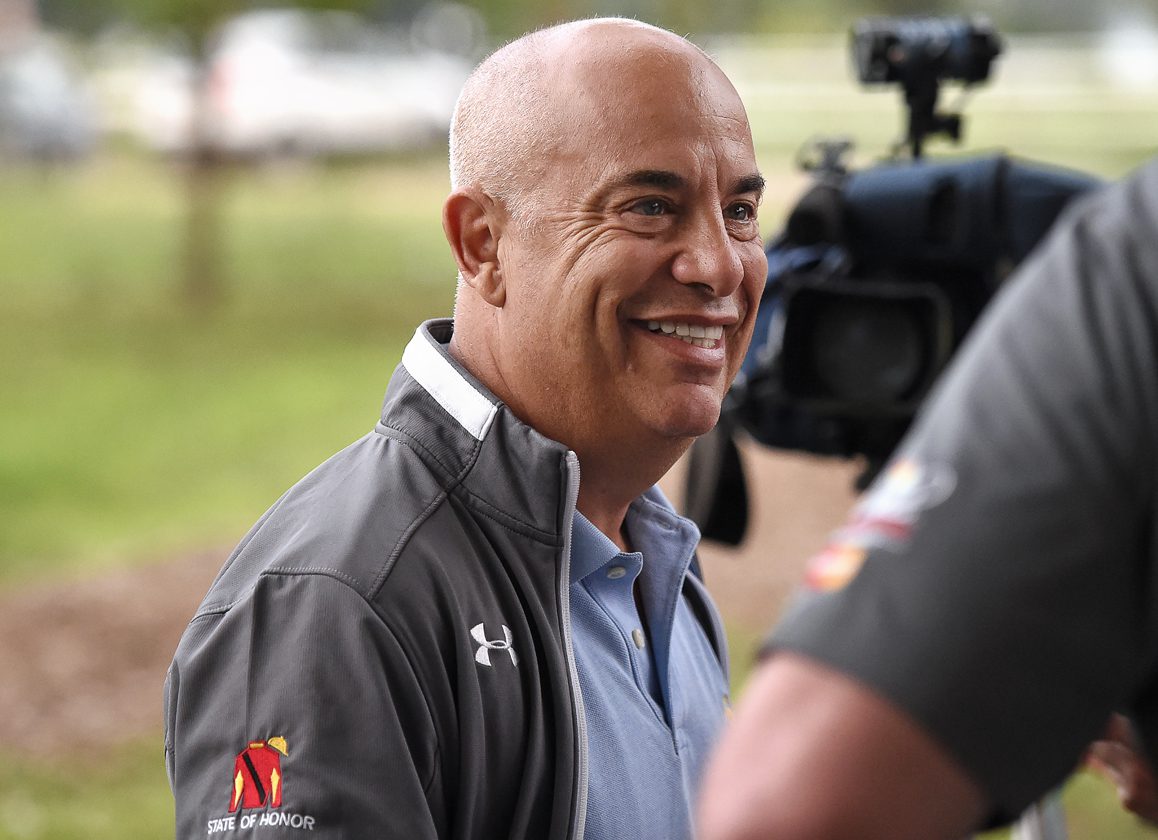Appearing as the Green Group Guest of the Week on this week's TDN Writers' Room podcast presented by Keeneland, Hall of Fame trainer Mark Casse grew emotional when the subject of the rash of fatalities that have plagued the sport this year came up. Believing that the industry has not done all that it can to help alleviate the situation and that tracks must embrace a return to synthetic surfaces, Casse admitted that his outlook on his profession and the sport has changed for the worse.
“This is sad to say, but I'm not as proud to be a horse trainer as I used to be,” he said. “I'm not proud of our sport. That's sad. In my opinion, it's dangerous and I'm going to do whatever I can do to help it. Frankly, my dear, I don't give a damn who I piss off or upset.”
Casse came on to discuss some of the opinions he expressed earlier in the week from a Q & A that ran in the TDN. Because he has stables at Woodbine, where all racing is conducted on either the Tapeta surface or turf, and at U.S. tracks where the predominant surface is dirt, Casse, perhaps more so than any other trainer, is well versed in the differences between the various types of surfaces. He has become an outspoken supporter of synthetic tracks and insists that U.S. racing needs to make the conversion from dirt to synthetic.
“I think it is,” he answered when asked if the time has come for dirt racing to be replaced. “We've got years and years of data that says it's far safer. The path we're going down right now is ugly and we have to do something and we have to do it quickly. It's going to take a drastic measure.”
Some believe that the end of dirt racing would be a huge blow to the breeding industry, where hundreds of millions of dollars have been invested in sires and bloodlines meant to produce top-class dirt horses. Casse argues that the potential problems have been exaggerated.
“It's not as big a worry as they make it out to be,” he said. “From my experience, maybe one out of ten horses don't like synthetic. Most good horses will run on anything pretty well. And I can tell you, they'll run a lot longer and last a lot longer.”
This isn't the first time that Casse has been outspoken about industry issues. He has also been vocal about what he saw as the widespread and ill-advised use of clenbuterol. He said his only motivation is to try to make this a better, safer sport.
“I'm going to give you everything I have,” he said. “I'll go down fighting. You can only do so much but I will do my best. I'm doing my best. I'm not a good loser.”
Elsewhere on the podcast, which is also sponsored by the Pennsylvania Horse Breeders Association, Kentucky Thoroughbred Owners and Breeders, NYRABets.com, WinStar Farm, XBTV.com, Stonestreet Farms, Lane's End and West Point Thoroughbreds, the team of Zoe Cadman, Bill Finley and Randy Moss also tackled the subject of synthetic surfaces, an issue that drew more attention after a tragic Saturday afternoon at Saratoga, which included the breakdown of New York Thunder (Nyquist) in the GI H. Allen Jerkens Memorial S. All three agreed with Casse that switching to synthetics has become a necessity. There was also a look at the GI Travers. S., won by Arcangelo (Arrogate) and an admission from Moss that he underrated the horse that is now the sport's leading 3-year-old male. The team also took a look back at the remarkable career of Hall of Famer Jonathan Sheppard, who passed away this week at the age of 82.
To watch the Writers' Room, click here. To view the show as a podcast, click here.
Not a subscriber? Click here to sign up for the daily PDF or alerts.






